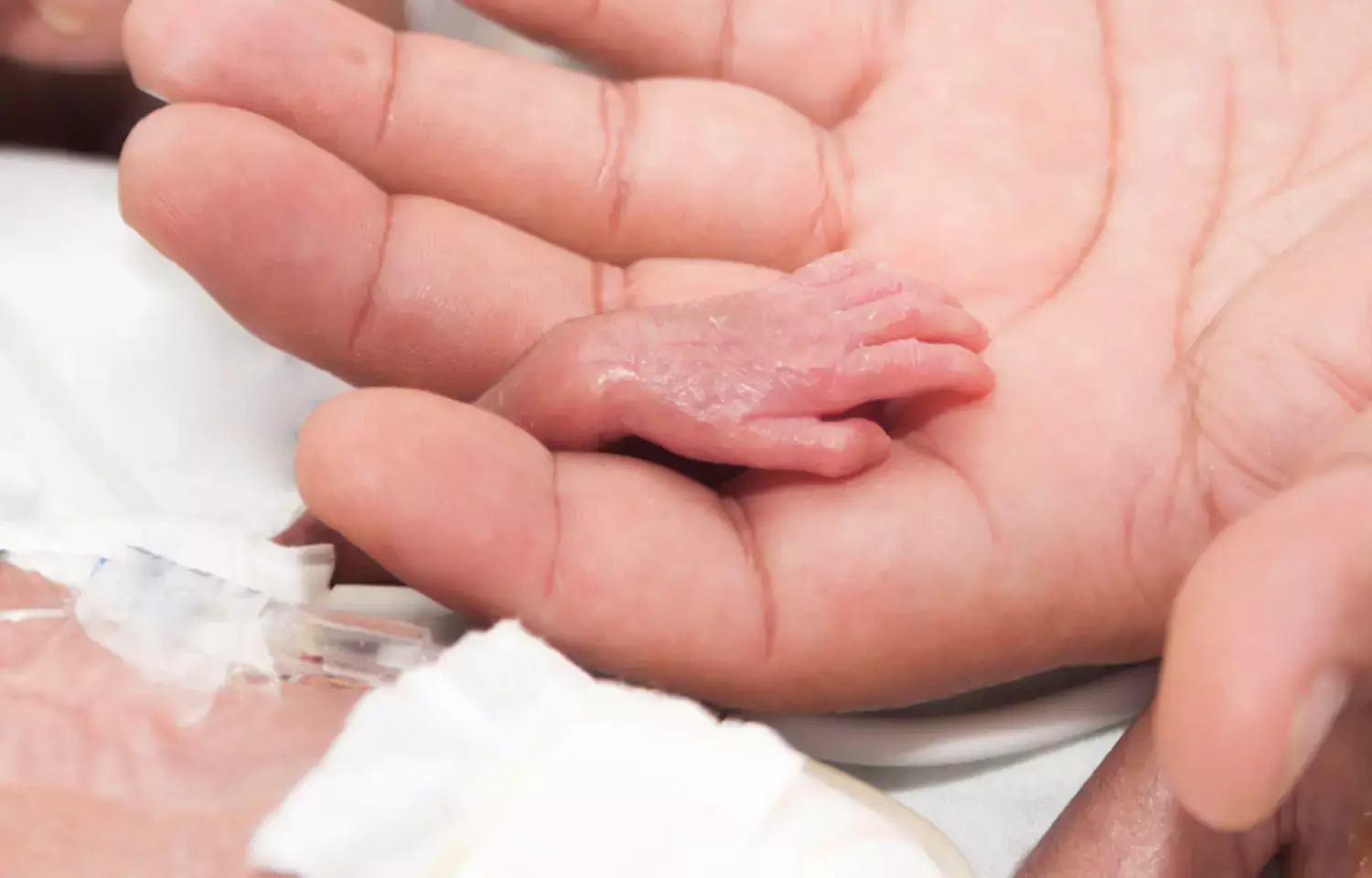- Home
- Medical news & Guidelines
- Anesthesiology
- Cardiology and CTVS
- Critical Care
- Dentistry
- Dermatology
- Diabetes and Endocrinology
- ENT
- Gastroenterology
- Medicine
- Nephrology
- Neurology
- Obstretics-Gynaecology
- Oncology
- Ophthalmology
- Orthopaedics
- Pediatrics-Neonatology
- Psychiatry
- Pulmonology
- Radiology
- Surgery
- Urology
- Laboratory Medicine
- Diet
- Nursing
- Paramedical
- Physiotherapy
- Health news
- Fact Check
- Bone Health Fact Check
- Brain Health Fact Check
- Cancer Related Fact Check
- Child Care Fact Check
- Dental and oral health fact check
- Diabetes and metabolic health fact check
- Diet and Nutrition Fact Check
- Eye and ENT Care Fact Check
- Fitness fact check
- Gut health fact check
- Heart health fact check
- Kidney health fact check
- Medical education fact check
- Men's health fact check
- Respiratory fact check
- Skin and hair care fact check
- Vaccine and Immunization fact check
- Women's health fact check
- AYUSH
- State News
- Andaman and Nicobar Islands
- Andhra Pradesh
- Arunachal Pradesh
- Assam
- Bihar
- Chandigarh
- Chattisgarh
- Dadra and Nagar Haveli
- Daman and Diu
- Delhi
- Goa
- Gujarat
- Haryana
- Himachal Pradesh
- Jammu & Kashmir
- Jharkhand
- Karnataka
- Kerala
- Ladakh
- Lakshadweep
- Madhya Pradesh
- Maharashtra
- Manipur
- Meghalaya
- Mizoram
- Nagaland
- Odisha
- Puducherry
- Punjab
- Rajasthan
- Sikkim
- Tamil Nadu
- Telangana
- Tripura
- Uttar Pradesh
- Uttrakhand
- West Bengal
- Medical Education
- Industry
Cardiorespiratory monitoring can predict outcomes in premature infants

In extremely preterm newborns, physiologic data are independently related with a poor respiratory prognosis, says an article published in American Journal of Respiratory and Critical Care Medicine.
In extremely preterm newborns, immature respiratory control is linked with apnea, periodic breathing, intermittent hypoxemia (IH), and bradycardia. However, it is unclear whether such occurrences indicate a poorer respiratory prognosis on their own. As a result, Namasivayam Ambalavanan and colleagues undertook this study to see if an analysis of cardiorespiratory monitoring data may predict unfavorable respiratory outcomes at 40 weeks (w) PMA, as well as other outcomes such bronchopulmonary dysplasia (BPD) at 36 weeks (w) PMA.
The Prematurity-Related Ventilatory Control (Pre-Vent) project was a multicenter prospective cohort study that included children born at 29 weeks gestation who were monitored continuously for cardiorespiratory function. The primary outcome might be "favorable" (alive and previously released, or inpatient and off respiratory medications/O2/support at 40w PMA) or "unfavorable" (dead or inpatient/previously released on respiratory medications/O2/support at 40w PMA).
The key findings of this study were:
1. There were 717 newborns assessed (median birth weight 850g; gestation 26.4w), with 53.7% having a favorable result and 46.3% having an unfavorable outcome.
2. The physiologic data indicated an unfavorable outcome, with accuracy increasing with age (AUC 0.79 at Day 7, 0.85 at Day 28, and 32w PMA).
3. The best predictive physiologic characteristic was intermittent hypoxemia with SpO290% (IH90).
4. Models based only on clinical data or integrating physiologic and clinical data also performed well, with AUCs ranging from 0.84-0.85 at Day 7 and 14, to 0.86-0.88 at Day 28 and 32w PMA.
5. At 40w PMA, intermittent hypoxemia with SpO280% (IH80) was the most important physiologic predictor of severe BPD and mortality or mechanical ventilation.
Prematurity-Related Ventilatory Control (Pre-Vent) data from cardiorespiratory monitoring may give predictive information regarding the clinical outcomes of extremely preterm newborns.
Reference:
Ambalavanan, N., Weese-Mayer, D. E., Hibbs, A. M., Claure, N., Carroll, J. L., Moorman, J. R., Bancalari, E., Hamvas, A., Indic, P., Kemp, J. S., Ratcliffe, S. J., Troendle, J. F., & Lake, D. E. (2023). Cardiorespiratory Monitoring Data to Predict Respiratory Outcomes in Extremely Preterm Infants. In American Journal of Respiratory and Critical Care Medicine. American Thoracic Society. https://doi.org/10.1164/rccm.202210-1971oc
Neuroscience Masters graduate
Jacinthlyn Sylvia, a Neuroscience Master's graduate from Chennai has worked extensively in deciphering the neurobiology of cognition and motor control in aging. She also has spread-out exposure to Neurosurgery from her Bachelor’s. She is currently involved in active Neuro-Oncology research. She is an upcoming neuroscientist with a fiery passion for writing. Her news cover at Medical Dialogues feature recent discoveries and updates from the healthcare and biomedical research fields. She can be reached at editorial@medicaldialogues.in
Dr Kamal Kant Kohli-MBBS, DTCD- a chest specialist with more than 30 years of practice and a flair for writing clinical articles, Dr Kamal Kant Kohli joined Medical Dialogues as a Chief Editor of Medical News. Besides writing articles, as an editor, he proofreads and verifies all the medical content published on Medical Dialogues including those coming from journals, studies,medical conferences,guidelines etc. Email: drkohli@medicaldialogues.in. Contact no. 011-43720751


